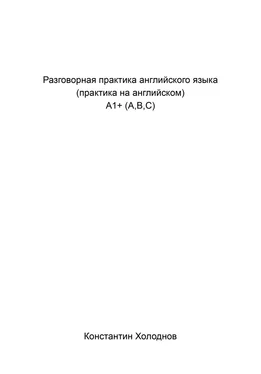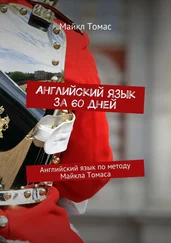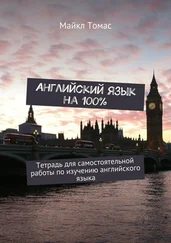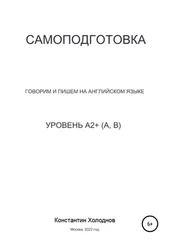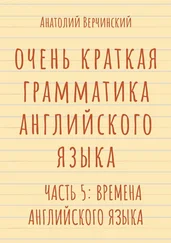• A1 [usually singular] the part of a piece of paper, etc. that is on the opposite side to the one that has information or the most important information on it
(Г: Возьмите карточку и напишите своё имя на обратной стороне.)
Возьмите карточку и напишите ваше/своё имя на задней_части_бумаги*.
*[usually singular] the part of a piece of paper, etc. that is on the opposite side to the one that has information or the most important information on it
Take /teɪk/ a card /kɑːd/ and write /raɪt/ your name /neɪm/ on the back.
(on the back)
(Я: Он нацарапал несколько цифр на обороте конверта.)
Он небрежно_написал* некоторые цифры на задней_части_бумаги (чего?) конверта.
*[transitive, intransitive] to write something quickly and carelessly, especially because you do not have much time
*to write something in a careless untidy way, making it difficult to read
*SYNONYM scrawl /skrɔːl/
He scribbled /ˈskrɪbld/ some /sʌm/ figures /ˈfɪɡəz/ (а/э) on the back of an envelope /ˈenvəloʊp/ (э), /ˈɒnvəloʊp/ (э).
(on the back of something)
• A1 [usually singular] the last few pages of a book, etc.
(Я: Телевизионный путеводитель находится в конце газеты.)
Телевизионный путеводитель/гид/руководство есть в/при последние_несколько_страниц(задней_части)* (чего?) бумаги/газеты.
*[usually singular] the last few pages of a book, etc.
The television /ˈtelɪvɪʒn/ guide /ɡaɪd/ is at the back of the paper /ˈpeɪpə(r)/ (а).
(at the back (of something))
(Я, Г: Ключ к ответу находится в конце книги.)
Ответный(ответа) ключ есть в последние_несколько_страниц(задней_части) (чего?) книги.
The answer /ˈɑːnsə(r)/ (а) key /kiː/ is in the back of the book.
(in the back (of something))
(Я: Статья, о которой я упоминал, есть в этом журнале – я думаю, ближе к концу.)
Статья Я упомянул есть в том журнале – к/в_направлении/по_направлению_к/навстречу последние_несколько_страниц(задней_части) Я думаю.
The article /ˈɑːtɪkl/ I mentioned /ˈmenʃnd/ is in that magazine /ˌmæɡəˈziːn/ (а/э) – towards /təˈwɔːdz/ (у) the back I think /θɪŋk/.
(towards the back (of something))
(Я: Страница искусства обычно находится в конце газеты.)
Искусств страница есть обычно к/в_направлении/по_направлению_к/навстречу последние_несколько_страниц(задней_части) (чего?) газеты.
The arts /ɑːts/ page /peɪdʒ/ is usually /ˈjuːʒuəli/ (о/а), /ˈjuːʒəli/ (а/э) towards the back of the newspaper /ˈnjuːzpeɪpə(r)/ (а).
Попробуйте придумать фразу с существительным back . Я вот такую придумал: My back is twisted /ˈtwɪstɪd/.
back adjective /bæk/ задний
[only before noun]
• A2
(Г: Мы сидели в заднем ряду)
PastC Мы были сидящие в заднем ряду
We were /wɜː(r)/ sitting /ˈsɪtɪŋ/ in the back row /roʊ/
задний сад
the back garden /ˈɡɑːdn/ (= behind the house)
задняя комната
a back room /ruːm/, /rʊm/ (= one at the back of a building)
Мой телефон есть в моём заднем кармане.
My phone's /foʊnz/ in my back pocket /ˈpɒkɪt/ (и/э).
задние зубы
back teeth /tiːθ/
(Я, Г: последняя страница газеты)
задняя страница (чего?) газеты
the back page /peɪdʒ/ of a newspaper /ˈnjuːzpeɪpə(r)/ (а).
back adverb /bæk/ назад, обратно; на расстоянии от чего-либо; в прошлом
• A1 to or into the place, condition, situation or activity where somebody/something was before
(Я, Г: Когда он вернётся к работе?)
Когда есть он приходящий назад/обратно* к работе?
*to or into the place, condition, situation or activity where somebody/something was before
When /wen/ is he coming /ˈkʌmɪŋ/ back to work /wɜːk/?
(Я, Г: Он вернётся в понедельник.)
Он будет быть назад/обратно на Понедельник.
He'll /hiːl/ be back on Monday /ˈmʌndeɪ/, /ˈmʌndi/.
(Я: Не забудьте вернуть его обратно, когда закончите с ним.)
PP (время Present Perfect) Не забывай приносить это назад/обратно когда ты имеешь финишированным/законченным с этим.
Don't /doʊnt/ forget /fəˈɡet/ (о) to bring /brɪŋ/ it back when /wen/ you've /juːv/ finished /ˈfɪnɪʃt/ with it.
Пожалуйста дай мне мой мяч назад/обратно.
Please /pliːz/ give /ɡɪv/ me my ball /bɔːl/ back.
Положи/поставь/помести книгу назад/обратно на полку.
Put /pʊt/ the book back on the shelf /ʃelf/.
• A1 away from the front or centre; behind you
OPPOSITE forward /ˈfɔːwəd/ (о)
(Г: Я отодвинулся, чтобы позволить им пройти.)
Я передвинулся назад* позволить им пройти**.
*away from the front or centre; behind you
**[intransitive, transitive] to achieve the required standard in an exam, a test, etc.
**[transitive] pass somebodyto test somebody and decide that they are good enough, according to an agreed standard
**(!!!) [intransitive, transitive] to move past or to the other side of somebody/something
**[intransitive] + adv./prep.to go or move in the direction mentioned
I moved /muːvd/ back to let them pass /pɑːs/.
(Я: Ты зачесала волосы назад.)
PP (время Present Perfect) Вы имеете причёсанными ваши волосы назад.
You've /juːv/ combed /koʊmd/ your /jɔː(r)/ hair /heə(r)/ (а) back.
(Я, Г: Он повернулся и посмотрел назад.)
He turned /tɜːnd/ and looked /lʊkt/ back.
• A2 at a place previously left or mentioned
(Я: Нам следовало повернуть налево пять километров назад.)
PP Мы должны(были) (нам следовало) иметь повёрнутым влево 5 километров назад*.
*at a place previously left or mentioned
We should /ʃʊd/ have turned /tɜːnd/ left five kilometres /kɪˈlɒmɪtəz/ (э/а), /ˈkɪləmiːtəz/ (а/э/о,э/а) back.
• A2 in return or reply
Если он ударяет меня, Я буду ударять его назад/обратно*.
*in return or reply
If he hits /hɪts/ me, I'll /aɪl/ hit him back.
(Я, Г: Не могли бы вы перезвонить позже, пожалуйста?)
Читать дальше
